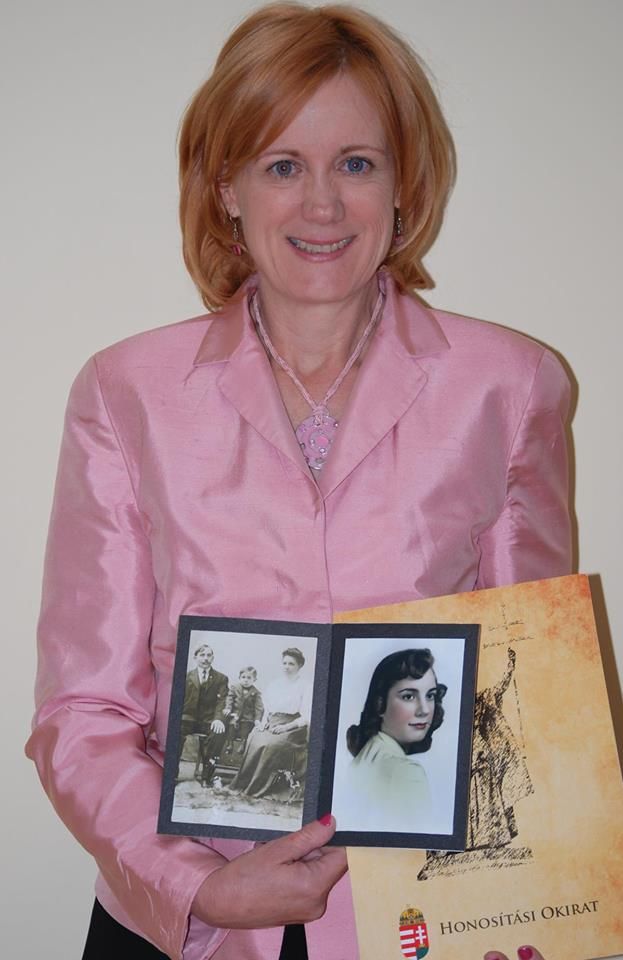
Jennifer Butler came to Catholic University after an undergraduate degree from the University of Texas, San Antonio. A scholarship from CUA’s Graduate Library Preprofessional (GLP) program led her to work at the American Catholic History Research Center and University Archives, under Timothy Meagher (Associate Professor of History and University Archivist) and John Shepherd (Associate Archivist). Their encouragement, and the experience Jennifer gained from learning how to document American history, led her to CUA’s joint degree program in history and in library and information science, an increasingly popular option combining academic and professional skills. She credits Professors Leslie Tentler and Stephen West in particular for deepening her love of history, and says that “My CUA professors individually assured I was prepared for the demands of research.”
After CUA, Jennifer held appointments as library coordinator at the College of Southern Maryland’s Prince Frederick campus, and as Director of Library and the Hawthorne Works Museum at Morton College, outside Chicago. She reflects, “I saw my library degree as a way to make a living, but my passion was always history, having grown up listening to the stories of my grandparents.” That passion for history and her sense of connection with her family’s roots have led to her recent career and personal move, to Hungary by way of Ireland.
Her European relocation began with her encounter with Irish set-dancing, when she went with her sister-in-law to an Irish festival in Ohio. Soon she was taking lessons, then going to Ireland for workshops. “I soon found myself spending all possible vacation time in Ireland, going to ceili dances and making friends.” This led her to apply for library jobs in Ireland: she got interviews, but her U.S. citizenship prevented her from getting a work visa.
Meanwhile she was exploring more of her family’s mixed immigrant roots. Her great-grandfather on her father’s side of the family came from Ireland, but this was one generation removed from qualifying for Irish citizenship. However, her mother’s grandparents moved to the U.S. from Hungary when her grandfather and his siblings were young children. Hungary recently allowed citizenship to those proving a direct bloodline, but requires proficiency in the language, which Jennifer was able to acquire because of Chicago’s large Hungarian-American community, enabling her to go to classes, tutoring and even Hungarian language coffee chats. “Naturally, I wanted to see my grandfather’s homeland, and began traveling and spending time in Hungary. I decided being centrally located in Europe would be a great adventure, and settled on a lovely spot to find a home near Lake Balaton.”
Some of Jennifer’s Hungarian friends in Chicago remarked that they had studied at a dual-language (Hungarian-English) high school in the area to which she was about to relocate. Their introduction led to the most recent stage in her remarkable journey. Starting in fall 2017, Jennifer will teach an American civilization class – American history, literature, music, and culture – to the upper three levels of students at Magyar-Angol Tannyelvű Gimnázium és Kollégium (Hungarian-English Secondary Grammar School and College) in Balatonalmádi. She recalls, “My second visit to the school the following month, when I dropped off my C.V. and transcripts, I was invited to sit in with an American civilization class where the students were making presentations about American science. I heard three young Hungarian students in perfect English discuss the Wright brothers, the atomic bomb, and the moon landing.”
“Friends have said I must’ve been born under a lucky star. I think: far from it. I had a poster hanging in my office for years which read ‘You have to be ready when your ship comes in.’ I used to joke, didn’t everybody go to Budapest to get to Belfast? Now I think I went to Belfast to get to Budapest.”
Looking back to her time at CUA, Jennifer says “I experienced a sense of community at Catholic University that I haven’t known, previously or since, at state universities. One of my first encounters after arriving on CUA’s campus was with an undergraduate student, who explained that participation in community service was part of their program. I recently returned to CUA to pick up transcripts, and was happy to learn that the friendly and caring kindness I had known continues as The Catholic University of America’s culture.”
